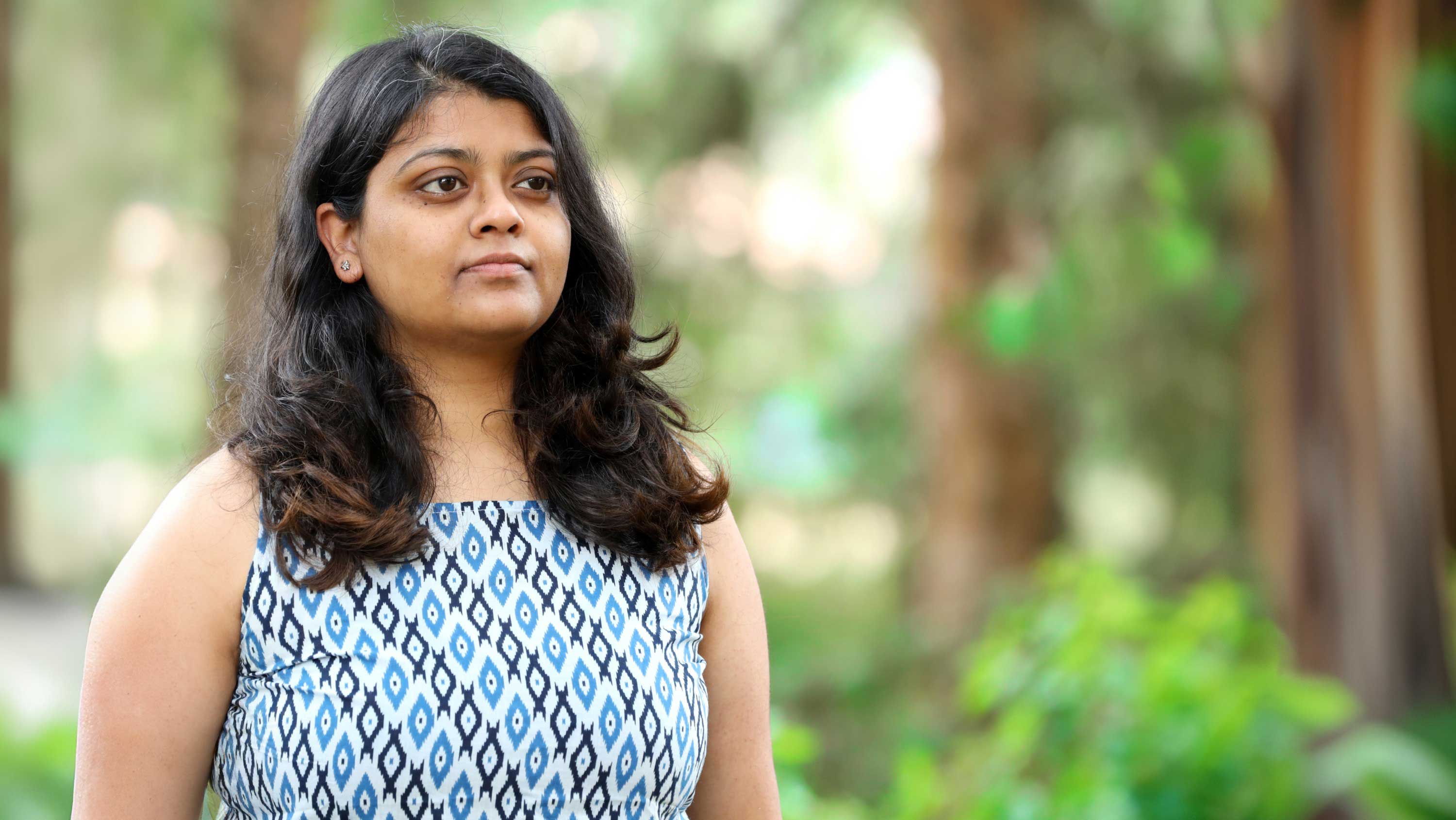Growing up in India, Nirupama Rajan was fascinated with animals, becoming an avid birder by the age of 12. She attended a high school steeped in the principles of sustainability and harmony with nature, convinced she wanted to be a microbiologist.
She opted for a program heavy in STEM, but biology was really the only subject she was interested in. While she also had a passion for literature and a natural affinity for the humanities, interdisciplinary programming just wasn’t the norm.
“It launched me headfirst into a depression,” says Rajan. “I had to drop out of school in the 11th grade and then restart that year in a different school.”
It may have taken a while to get her bearings, but one constant in her life has been activism — first for the environment and later for social causes. Eventually she found her intellectual home in gender studies. This week she graduates with a master of arts degree focused on intimate partner violence.
Once past her high school setback, Rajan switched her academic path into the humanities, enrolling in a triple major at Christ University in Bangalore in media studies, economics and political science.
She remained dedicated to the environmental activism nurtured in high school, and with her partner volunteered at a non-profit, youth development program aimed at doing their small part to help clean up the city of eight million people.
“The environmental problems in Bangalore were pretty big,” she says. “But we would just do what we could — talk to the local government officials and offer to organize drives to clean up pockets of the city.”
Their efforts extended to improving the lives of children. “We would partner up with schools for children from economically poor backgrounds and conduct games sessions.”
Like many young people, she admits to drifting a bit after graduating from university and feeling “completely lost.” She secured a volunteer position in Germany as a kindergarten educator, a program that allowed her to attend conferences and seminars with experts in global affairs.
That’s when she was struck with the closest thing to an epiphany she’s ever experienced. At the end of one long gender studies seminar, she noticed her friends fidgeting as their attention waned.
“I remember thinking, I don’t want this ever to end,” says Rajan. “I was so happy in that conversation; it just mattered so much and made so much sense.”
Rajan was also coming to terms with her own experiences of sexual violence “in various pockets throughout my life,” she says, and yearned for a deeper understanding of its dynamics.
After returning to Bangalore from Germany, she spent two years working for a not-for-profit called Vimochana, involved in interventions and responses to domestic violence cases. By then her partner was studying human-computer interaction at the University of Maryland, so she searched for a gender studies program that was at least on the same continent.
She applied to Canada’s biggest universities, including UBC, McGill and the University of Toronto. She was accepted by a few, but the U of A’s Department of Women’s and Gender Studies stood out for one reason that tipped the scales — an affirming recruitment strategy.
“They just seemed incredibly supportive,” she says. “There was no gatekeeping. It was just, ‘How can we facilitate the thing you want to do?’ as opposed to the barriers I encountered at a lot of big universities — a you-would-be-privileged-to-study-here attitude.
“It seemed like a department I wanted to be a part of.”
Her own research interests aligned perfectly with those of her eventual supervisor, Philomina Okeke-Ihejirika, whose expertise includes issues of gender and international migration.
For her master’s thesis, Rajan examined how immigrant women from Southeast Asia or Africa experience intimate-partner violence differently from women in Canada or the West.
“Very often immigrant women don’t get access to the kind of services they need or want, because the system here is based primarily on a Canadian understanding of family violence,” she says. “That can discourage them from even asking for support.”
Services for survivors of intimate partner violence are individualistic in the West, she says, tending to focus on separation or divorce as the only solutions. In collectivist cultures such as Africa, conflicts are more often mediated by elders in the community.
“A lot of women want this — they don’t actually want to leave their partners,” says Rajan.
Ever the activist, Rajan has been helping to co-ordinate an outreach program for temporary foreign workers for Migrante Alberta, a national alliance of Filipino migrants. She is also designing an intersectional policy course for undergraduate students for Susanne Luhmann, another professor in her department.
Rajan can’t say what her future holds. Having lived a “nomadic life” for so long — following her teacher parents from school to school nine times as a child — she says it’s doubtful she’ll ever stay long in one place.
“If you check in with me in a few years, I might be able to give you an answer. But I don't see the work with Migrante ending anytime soon. They’re family for me at this point.”
